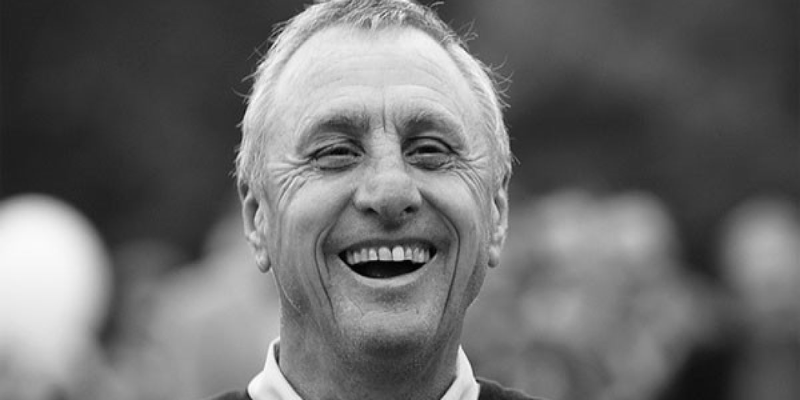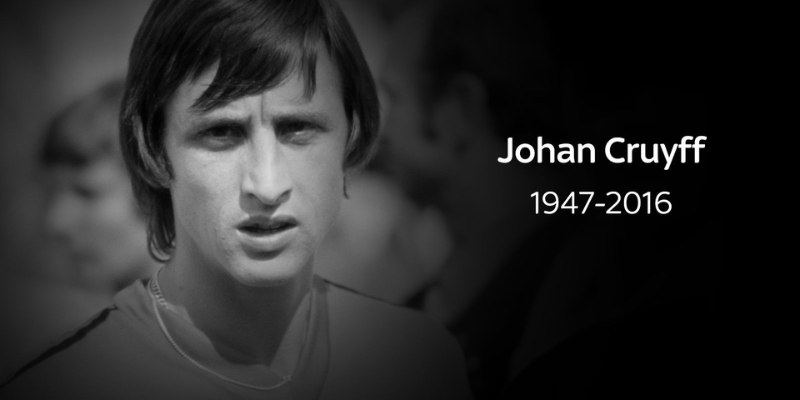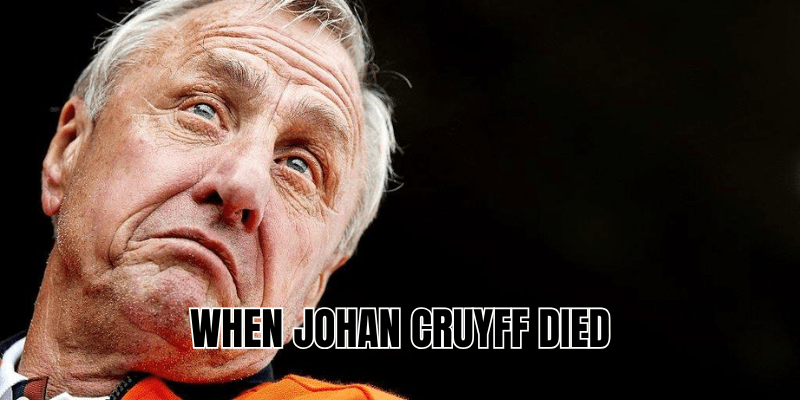The question of when Johan Cruyff died takes us back to one of the saddest days in football history. On March 24, 2016, the Dutch maestro passed away in Barcelona at the age of 68 after a battle with lung cancer. His death not only marked the loss of a legendary player but also of a visionary coach and thinker who redefined how the game was played and understood. For millions of fans across the globe, it felt like football had lost its guiding philosopher.
In this article, BraeckBall will take you on a journey through Cruyff’s final years, his immense impact on Ajax, Barcelona, and world football, and why his legacy remains unshakable almost a decade after his passing.
The final years of Johan Cruyff

In the early 1990s, Cruyff had already suffered serious health issues, including heart problems linked to his heavy smoking. He quit smoking after a bypass surgery and even appeared in anti-smoking campaigns. However, in October 2015, the public learned that Cruyff was battling lung cancer.
Cruyff faced the disease with remarkable calmness and even optimism, famously stating that he felt he was “2–0 up at half-time” in his fight against cancer. But just a few months later, on March 24, 2016, surrounded by family in Barcelona, his body could no longer resist. The day he passed was mourned as if football itself had gone silent.
Reactions to his death
The reaction to when Johan Cruyff died showed the depth of his influence across nations and generations. The Netherlands lowered flags, Barcelona organized tributes, and thousands of fans gathered outside Camp Nou to lay flowers, scarves, and jerseys.
Football greats spoke of him as irreplaceable:
- Pep Guardiola called him “the most influential person in football history.”
- Hristo Stoichkov described him as a “second father.”
- The Dutch FA labeled him “the greatest Dutch footballer of all time.”
Even rival clubs paid homage, recognizing that Cruyff was more than a player; he was a symbol of football’s artistic side.
Cruyff’s influence as a player

Cruyff began his career at Ajax, where he embodied the concept of “Total Football” under coach Rinus Michels. He could play in almost any position, dazzling with intelligence, technique, and vision.
Highlights of his playing career include:
- Winning 3 Ballon d’Or trophies (1971, 1973, 1974).
- Leading Ajax to 3 consecutive European Cups (1971–1973).
- Introducing the “Cruyff turn,” a skill still taught in academies worldwide.
- Inspiring the Dutch national team to reach the 1974 World Cup final, where they lost to West Germany but revolutionized football tactics.
His unique blend of elegance and ruthlessness made him a pioneer, an artist with the ball who reshaped what it meant to play forward.
Cruyff as a coach and visionary
After retiring, Cruyff turned to management and quickly proved that his brain was as sharp as his boots.
Ajax and the birth of an idea
He returned to Ajax as a coach in the 1980s, laying foundations for a new era of youth development and positional football. His methods stressed intelligence, creativity, and control of space, concepts that would later define modern football.
Barcelona and the Dream Team
Cruyff’s most lasting coaching legacy was at FC Barcelona. Taking charge in 1988, he built the famous “Dream Team,” introducing tiki-taka principles decades before they became mainstream. Under him, Barcelona won their first-ever European Cup in 1992. He also planted the seeds of La Masia’s golden generation, influencing players like Xavi, Iniesta, and Messi through his philosophy.
Without Cruyff, there would be no Guardiola, no tiki-taka, and perhaps no modern Barcelona as we know it.
Cruyff’s philosophy and legacy

Cruyff’s vision of football went beyond tactics. He believed the game was about joy, freedom, and intelligence. His famous quotes continue to inspire:
- “Playing football is very simple, but playing simple football is the hardest thing.”
- “Quality without results is pointless, results without quality are boring.”
His teachings shaped not only Ajax and Barcelona but also the DNA of Dutch and Spanish football. Every time a team dominates possession with creativity and courage, Cruyff’s spirit is present on the pitch.
How football remembers Cruyff today
Almost a decade after when Johan Cruyff died, his legacy remains alive:
- The Johan Cruyff Arena in Amsterdam honors his name.
- Barcelona’s training facilities were renamed in his memory.
- The Johan Cruyff Foundation supports sports opportunities for children worldwide.
- Coaches like Guardiola, Ten Hag, and Luis Enrique continue to carry his philosophy into modern football.
For fans, Cruyff is not just history—he is still a living influence on every match played with intelligence and beauty.
Conclusion
The story of when Johan Cruyff died is not only about a date—March 24, 2016—but about the moment football lost one of its greatest architects. His passing left a void, yet his philosophy continues to breathe life into the sport. Cruyff’s genius as a player, his brilliance as a coach, and his courage as a human being make him eternal in football memory.
At BraeckBall, we believe revisiting Cruyff’s life is not about nostalgia but about understanding why the beautiful game truly is beautiful. Stay with us for more stories, biographies, and insights into the legends who shaped football into the global passion it is today.



